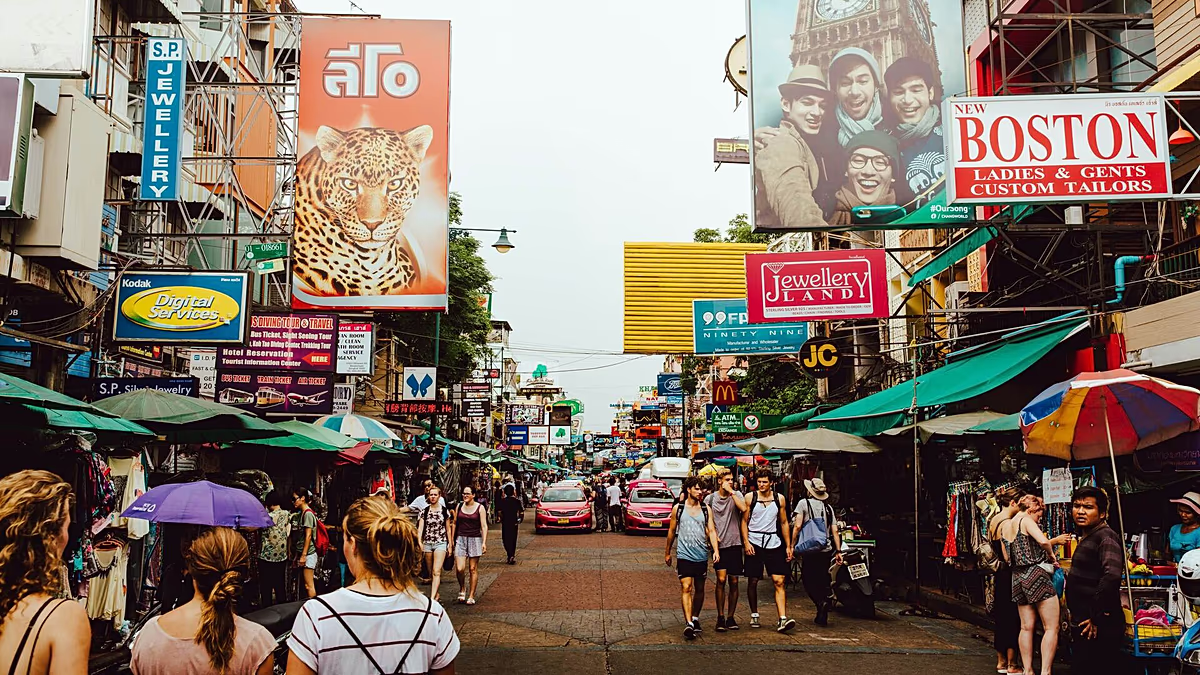Thailand Moves to Relax Alcohol Restrictions to Revitalize Tourism
In a significant policy shift reflecting changing times and economic pressures, Thailand is considering lifting one of its longest-standing and most puzzling alcohol restrictions—the ban on sales between 2 pm and 5 pm. This potential change represents more than just an adjustment to drinking hours; it signals Thailand’s recognition that modernizing certain regulations may be necessary to maintain its position as a premier global tourism destination. For travelers who have found themselves unexpectedly unable to order a cold beer during an afternoon beach session or a late lunch, this news offers a glimpse into how Thailand is attempting to balance its traditional values with the practical needs of its vital tourism economy.
Thailand has long held a paradoxical position in the travel world—marketed as a carefree paradise of beautiful beaches, vibrant nightlife, and relaxed attitudes, while simultaneously maintaining surprisingly strict regulations on alcohol consumption. This contradiction has created confusion for millions of international visitors who arrive expecting the “Land of Smiles” portrayed in travel brochures, only to discover unexpected restrictions. The afternoon alcohol ban, introduced in 1972 primarily to prevent government employees from drinking during work hours, has persisted for over five decades despite dramatic changes in Thai society and work culture. Now, the National Alcohol Policy and Alcoholic Beverage Control Committees have proposed eliminating this restriction entirely, with a 15-day public consultation period underway. If approved, the changes could take effect as early as December 2025, potentially removing one of the more perplexing aspects of Thailand’s tourism experience.
The timing of this proposed change is hardly coincidental, as Thailand faces troubling trends in its crucial tourism sector. Despite its enduring appeal and the global exposure from hit shows like “The White Lotus,” visitor numbers are expected to reach just 33.4 million in 2025—a 6% decline from the previous year and the first annual drop in a decade outside of the pandemic period. Tourism officials project only marginal improvement in 2026, with expectations of approximately 34 million international arrivals. Perhaps even more concerning for the Thai economy is that per-visitor spending remains stubbornly low, creating a challenging situation for a country where tourism directly and indirectly supports millions of jobs across various sectors—from street food vendors in Bangkok to dive operators in Koh Tao and luxury hotels in Phuket. Deputy Prime Minister Sophon Saram has explicitly linked the proposed alcohol policy changes to these economic concerns, emphasizing the government’s intent to stimulate tourism during peak seasons like New Year celebrations and Songkran, the water festival that typically draws massive crowds in April.
Thailand’s approach to alcohol regulation has historically resembled a pendulum, swinging between periods of tightening and loosening controls. The current policy allows alcohol sales from 11 am to 2 pm and 5 pm to midnight, with extended hours until 4 am in designated entertainment zones in major tourist areas. However, enforcement has always been inconsistent, creating a confusing landscape where travelers might see locals drinking freely during restricted hours in some areas while facing strict enforcement in others. Just this month, authorities briefly reintroduced substantial fines of 10,000 baht (approximately €267) for anyone—including unsuspecting tourists—found drinking during prohibited hours. This enforcement inconsistency has long been a source of frustration for visitors who struggle to understand why they can enjoy a cocktail at some establishments during the afternoon while being refused service at others just steps away. The proposal to eliminate the afternoon ban represents a pragmatic acknowledgment that the original rationale behind the restriction—preventing government workers from drinking during office hours—no longer aligns with contemporary work patterns or the realities of a tourism-dependent economy.
For travelers, the potential elimination of the afternoon alcohol ban would remove a significant source of confusion and inconvenience. Imagine arriving at a beachside restaurant after a morning of snorkeling, only to be told you can’t have a beer with your late lunch because it’s 3 pm. Or picture planning a celebration with newly-made friends during your travels, only to discover that your hotel can’t serve champagne for your 4 pm gathering. These scenarios have played out countless times for visitors to Thailand, creating moments of frustration that contrast sharply with the country’s reputation for hospitality and flexibility. Beyond mere convenience, lifting the ban would bring policy closer to the lived experience on the ground, where enforcement has always been uneven and where many tourists already find ways to navigate around the restrictions. The change would particularly benefit spontaneous travelers who prefer not to plan their days around arbitrary drinking windows, allowing them to more freely enjoy Thailand’s renowned food scene, gorgeous beaches, and vibrant social atmosphere without worrying about when they can or cannot purchase a drink.
As Thailand grapples with increasing competition from emerging Southeast Asian destinations like Vietnam and Indonesia, these proposed changes reflect a broader willingness to adapt regulations to meet contemporary expectations. The country finds itself at a crossroads, needing to preserve its unique cultural identity while creating a welcoming environment for international visitors who provide critical economic support. The potential lifting of the afternoon alcohol ban serves as a microcosm of this larger balancing act—maintaining public health considerations and cultural sensitivity while removing unnecessary barriers to tourist enjoyment and spending. Whether this policy shift will be enough to reverse the tourism slowdown remains uncertain, but it demonstrates Thailand’s commitment to evolving as a destination. For a country that has built its international image on beautiful landscapes, rich traditions, and a warm welcome, these adjustments suggest a pragmatic recognition that sometimes even the Land of Smiles needs to update its rules to keep visitors coming back with their hearts—and wallets—open.









